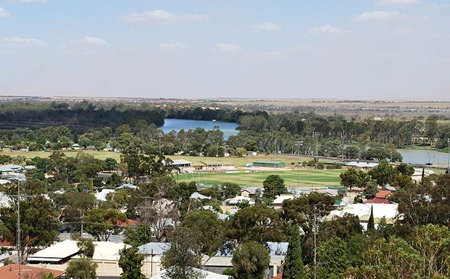Down at the village inn the other night, some of the chaps were bemoaning the increasing cost of wine in this fair and bounteous land. Wine has never been cheap in Thailand and even when I first visited these shores nearly twenty-eight years ago, I was staggered by how much money I had to fork out for a glass of red. The recent tax increases have made the situation much worse and now we have to pay well over 400% in taxes and import duties on an ordinary bottle of plonk. It’s even more alarming when you consider that about eighty-five percent of any wine is actually water.
For a lot of people around here and especially the nouveaux pauvres, boxed wines are becoming a preferred option purely on the grounds of price. The Australians like to call them “wine casks” but they’re the same thing: a sealed plastic bag of wine inside a cardboard box. Apart from the lower cost, the main advantage of boxed wines is that they’ll keep for several weeks once opened, so you don’t need to finish an entire bottle in one evening, although I have never found that a particular problem.
 The Murray River and the football ground at Berri. (Photo: Mattinbgn)
The Murray River and the football ground at Berri. (Photo: Mattinbgn)
At one time, wine drinkers were a bit sniffy about boxed wines, which was not altogether surprising because they had a rather dodgy reputation. There are still some pretty bad ones around, especially (and rather surprisingly) from France and Italy. A few weeks ago, I tasted a real killer from Italy which was virtually undrinkable. Even the dogs turned it down. Nevertheless, there are some sound and reliable boxed wines available, many of them blended in an easy-to-drink style.
Mont Clair is the workhorse wine of almost every bar and cheap restaurant in town. It’s a decent enough everyday drinker and if you buy it in boxes, it works out a whole lot cheaper than bottles. Mont Clair comes from Siam Winery and they also produce an increasing range of fairly cheap boxed wines, blended to suit Thai tastes and pair well with Thai food. Like the ubiquitous Mont Clair, both the wines this week are actually designated as “fruit wines” and you’ll see these words printed in small type on the label. The base wines are usually imported in bulk from the countries of origin and then under the skilled supervision of expert wine-makers at Siam Winery, they’re blended with a quantity of local fruit wine. But don’t let that put you off, because both these wines are quite pleasant easy-drinkers and could liven up many a party or other social gathering. You can usually find them at Tesco-Lotus and Big C as well as many smaller outlets.
Berri Estates Five Star White (Australia) (Bt. 649 for 3 litres @ various outlets)
Berri Estates Winery was established in 1924 and is situated on the Old Sturt Highway in the heart of South Australia’s Riverland. It’s between the attractive hamlet of Berri and the popular town of Barmera both of which sit on the banks of the Murray River. Berri Estates is Australia’s largest single operating winery and distillery complex, equipped with modern drainage, pressing, clarifying and chilling facilities to guarantee the quality of its wines. The company describes itself as the maker of “Australia’s Favourite Wine” and the winery processes 70,000 tonnes of grapes every year with the capacity to store over 73 million litres of wine.
It says “Chardonnay Style” on the side of the box and the wine actually smells like one. A Chardonnay I mean, not a box. There’s a pleasant, mild floral aroma of tropical fruit; plenty of fruit on the palate with reminders of pineapple, peach and melon and just the slightest touch of crisp acidity to give the body a bit of firmness. There’s a surprisingly long and fruity finish too. It’s a dry wine, but a couple of degrees away from total dryness and at just 12% alcohol content it’s very undemanding and easy-drinking. The price works out at the equivalent of Bt. 162 per bottle and it would make an excellent social or party wine. It would probably pair quite well with light chicken dishes or mild Thai food but whatever you do, serve it pretty cold to get the best taste. Oh, and in case you’re wondering, the name “Berri” evidently comes from an Aboriginal word meaning “a wide bend in the river”. I knew you’d be pleased to know that.
Mar Y Sol Chilean Red (Chile) (Bt. 799 for 4 litres @ various outlets)
It sounds like the name of a Spanish seaside resort somewhere south of Benidorm, but the expression Mar y Sol actually means “sea and sun”, referring to the wine growing areas of Chile, although it has to be said that most of the Chilean vineyards are a good way from the sea. But never mind, it makes an evocative name for this popular-style wine with its attractive bright red colour, mild aromas of red fruit and a delicate touch of spice. It has a smooth mouth-feel with plenty of rich fruit on the palate, a medium body and a pleasant finish. It’s an easy-drinking, undemanding wine and if you like Mont Clair red you’ll probably like this one too, although it’s a bit smoother on the palate and there’s a slight hint of sweetness.
It would make a decent party wine and works out at the equivalent of about Bt. 160 per bottle. It’s only 12.5% alcohol content which as far as I am concerned is good news. If you ask me, there are far too many high-alcohol wines around these days. Just one extra degree of alcohol makes a significant difference to the taste. If I’m looking for a wine to go with dinner and I find one that’s 13.5% or 14%, I usually leave it on the shelf, because I don’t want to feel legless half way through the meal.




